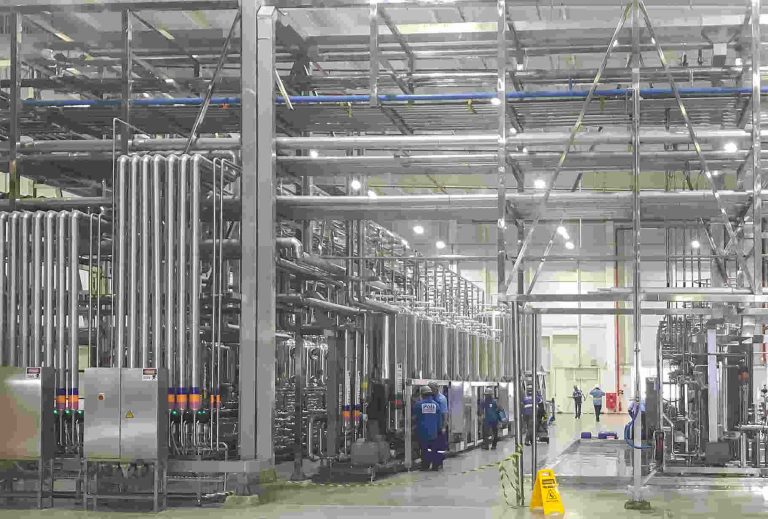Einführung

In Branchen, in denen die sichere Lagerung und Handhabung von Chemikalien von entscheidender Bedeutung ist, spielen Intermediate Bulk Container (IBCs) eine entscheidende Rolle. In diesem Blog werden die zahlreichen Vorteile untersucht, die mit der Verwendung von speziell für die Lagerung von Chemikalien entwickelten Intermediate Bulk Container-Transportbehältern verbunden sind, und ihr Beitrag zur Sicherheit, Effizienz und Nachhaltigkeit in industriellen Abläufen wird hervorgehoben.
Verständnis IBC Tote Cages
Intermediate Bulk Containers (IBCs) are robust containers designed to store and transport liquids and bulk materials. They are typically constructed from materials such as high-density polyethylene (HDPE) or stainless steel, chosen for their durability and chemical resistance. The design of IBC tote cages incorporates a sturdy framework that enhances stability and facilitates safe handling, even in demanding environments.
Hauptvorteile von IBC Tote Cages
Enhanced Safety and Durability
IBC tote cages are engineered to withstand the challenges posed by storing chemicals. Their construction materials, particularly stainless steel, offer exceptional resistance to corrosion and chemical reactions. This durability not only ensures the integrity of stored chemicals but also minimizes the risk of leaks or spills that could endanger personnel and the environment.Furthermore, the robust framework of Intermediate Bulk Containers tote cages provides structural support, allowing them to maintain their shape and stability under varying conditions, including during transportation and stacking.
Cost-Effectiveness and Efficiency
One of the primary advantages of using Intermediate Bulk Containers tote cages lies in their cost-effectiveness over the long term. Compared to traditional storage methods such as drums or barrels, IBCs can store larger volumes of chemicals in a single unit. This consolidation reduces the number of containers needed, thereby lowering packaging, transportation, and disposal costs.Moreover, IBC tote cages are designed for efficiency in both storage and logistics. Their standardized dimensions allow for easy handling with forklifts and pallet jacks, streamlining loading and unloading processes. Their stackable nature optimizes storage space, whether in warehouses or during transit, further contributing to operational efficiency.
Platzoptimierung
The cubic design of IBC tote cages maximizes storage space utilization. When empty, these containers can be nested or collapsed, minimizing storage footprint and facilitating efficient space management. This feature is particularly beneficial in industries where warehouse space is at a premium or when transporting empty containers back to the supplier.
Ökologische Nachhaltigkeit
In today’s environmentally conscious world, the sustainability of packaging materials is a significant consideration. IBC tote promote sustainability through their reusability and recyclability. Unlike single-use drums or containers, which contribute to waste generation, IBCs can be cleaned, refurbished, and reused multiple times. This reduces waste disposal costs and supports environmental stewardship by conserving resources and reducing overall carbon footprint.
Vergleich von IBC Tote Cages vs. Traditional Storage Methods
| Aspekt | IBC Tote Cages | Traditional Drums/Barrels |
|---|---|---|
| Sicherheit | Superior due to robust construction | More prone to leaks and spills |
| Kosten | Cost-effective over the long term | Higher initial cost, more frequent replacement |
| Platzeffizienz | Stackable and nestable | Require more floor space for storage |
| Umweltauswirkungen | Reusable, reduces waste | Often single-use, higher waste generation |
Fallstudien und Anwendungen

Several industries have adopted IBC tote cages for chemical storage due to their practical benefits. Case studies from sectors such as pharmaceuticals, food processing, and manufacturing demonstrate real-world applications and the resultant advantages in terms of efficiency, safety, and cost savings. These examples illustrate how IBC tote cages can be customized to meet specific industry needs, ensuring compatibility with various chemicals and operational requirements.
Abschluss
In conclusion, the adoption of IBC tote cages for chemical storage offers numerous advantages in terms of safety, cost-effectiveness, space efficiency, and environmental sustainability. Industries seeking to enhance their storage practices and minimize operational costs should consider integrating IBCs into their supply chain strategies. By leveraging the benefits of IBC tote, businesses can achieve safer, more efficient, and environmentally responsible chemical storage solutions.
Häufig gestellte Fragen
F: Sind IBC tote cages suitable for all types of chemicals?
A:IBC tote cages are available in various materials and configurations designed to accommodate different chemical properties. It’s essential to select the appropriate type of IBC based on the specific compatibility requirements of the chemicals being stored.
Q:How often should IBC tote cages be inspected and maintained?
A:Regular inspections and maintenance routines are crucial to ensure the continued safety and integrity of IBC tote cages. This includes visual inspections for signs of wear or damage, as well as testing to verify structural integrity and chemical resistance.
Q:What are the disposal options for IBC tote cages at the end of their lifecycle?
A:At the end of their lifecycle, IBC tote cages can often be recycled, depending on their material composition. Proper cleaning and preparation for recycling should be undertaken to minimize environmental impact and comply with waste disposal regulations.
Q:Can IBC tote cages be customized for specific storage needs?
A:Yes, IBC tote cages can be customized with additional features such as specialized linings, fittings, or insulation to meet specific storage requirements for different types of chemicals. Customization ensures compatibility and enhances operational efficiency in chemical handling processes.

